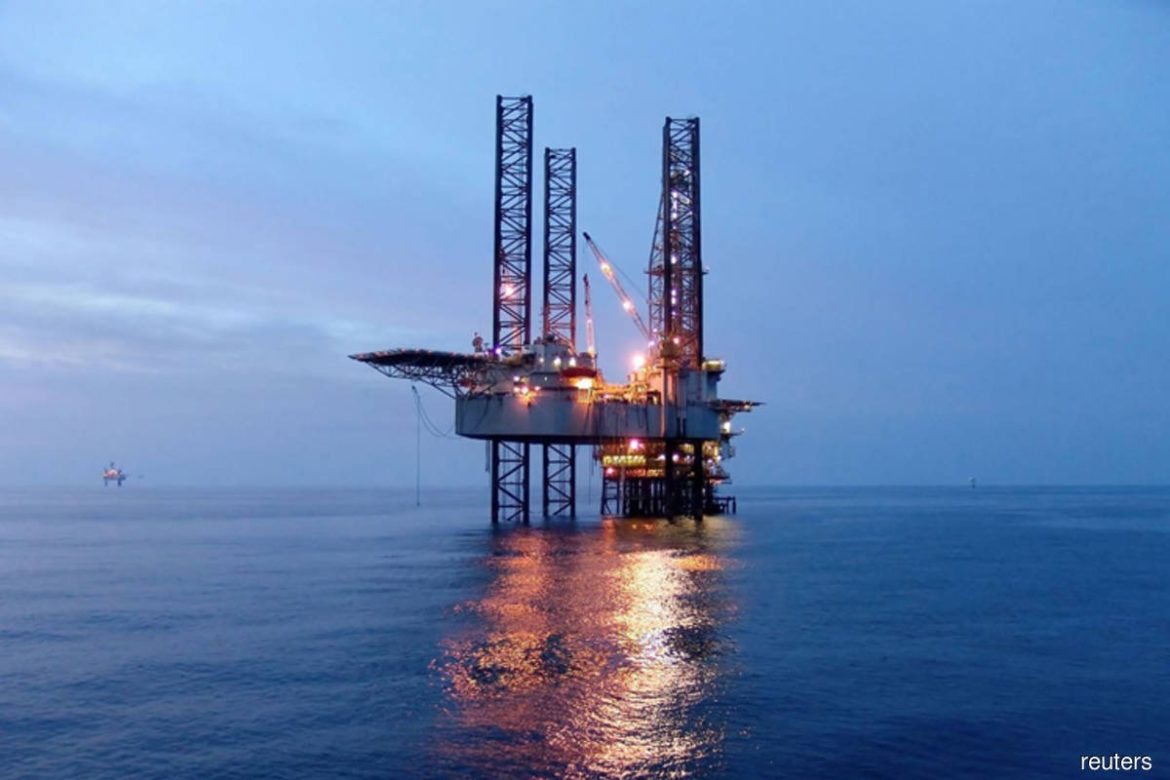Oil shoots near $130 as chance of Russian ban spurs crisis fears

Oil soared in Asia — jumping as much as 18% early in the session — after reports that the US was discussing a ban on Russian crude imports sent shock waves through an already-reeling market.
Brent quickly pared around half those gains to trade near $130 a barrel, a level that’s still exacerbating fears of a major inflationary shock to the global economy. The Biden administration is considering whether to prohibit Russian oil imports into the US without the participation of allies in Europe, at least initially, according to two people familiar with the matter.
That came after Secretary of State Antony Blinken told NBC over the weekend that the White House is in “very active discussions” with its European allies about a ban to tighten the economic squeeze on President Vladimir Putin. The US has so far resisted restrictions on Russian crude imports due to concerns about the impact of rising prices on consumers, but most buyers are refusing to take it, resulting in an embargo in all but name.
Brent traded in a $16.34 a barrel range on Monday, the widest on record for the London benchmark, as the market adjusted to the possibility of about 8% of global oil imports being absent for a prolonged period. That makes it the most volatile trading day for oil since West Texas Intermediate plunged below zero in 2020. JPMorgan Chase & Co. said Brent could end the year at $185 a barrel if Russian supply continues to be disrupted, while one hedge fund said $200 was a possibility.
The shock of surging prices for oil and other commodities coursed through markets and raised alarm bells at central banks. The rupee was among the biggest currency losers in Asia amid fears the Reserve Bank of India will have to raise its inflation forecast, but has little scope to tighten monetary policy.
“We have plenty of twists and turns to come,” Mike Muller, Vitol Group’s head of Asia, said Sunday on a podcast produced by Dubai-based consultant and publisher Gulf Intelligence. “While I think the world is already pricing in the fact there’ll be an inability to take in a serious amount of Russian oil in the western hemisphere, I don’t think we’ve priced in everything yet.”
Brent’s swings have eclipsed those in the global financial crisis of 2008 and the demand plunge sparked by the coronavirus pandemic. Traders, shippers, insurers and banks have been increasingly wary of taking on or funding purchases of Russian barrels as they navigate financial sanctions.
There are efforts underway to try and increase supply. Two senior US officials met with members of Venezuelan President Nicolas Maduro’s government in Caracas to discuss global oil supplies and the country’s ties to Russia, according to people familiar with the matter. Iran, meanwhile, made progress toward a deal with world powers over its nuclear program, which could pave the way for sanctions on Tehran’s oil to be lifted by the third quarter.
In more worrying news for supply, however, OPEC producer Libya said its oil output fell below 1 million barrels a day because of a domestic political crisis.
Brent’s backwardation, a market structure where prompt barrels are more expensive than later-dated ones, rose to $5.17 a barrel, highlighting the rising anxiety about short-term supply. The prompt spread was $3.77 on Friday.
Saudi Arabia hiked prices of its main crude blends for all regions following the surge in oil futures, raising costs for refiners that may be forced to cut processing rates should profit margins shrink. The kingdom boosted its Arab Light crude for next month’s shipments to Asia to $4.95 a barrel above the benchmark it uses. That’s the widest in data going back to 2000.
At the weekend, the International Monetary Fund warned that the war, as well as the subsequent sanctions imposed on Russia, will have a “severe impact” on the global economy. “While the situation remains highly fluid and the outlook is subject to extraordinary uncertainty, the economic consequences are already very serious,” the Washington-based lender said.
“With the surge in geopolitical tensions, uncertainty and anxiety, it would be quite difficult to accurately gauge the top of this rally,” said John Driscoll, founder of JTD Energy Services in Singapore. “During the 2008-2009 financial crisis, demand destruction kicked in around $150 a barrel,” but this spike is supply-driven and may send prices beyond that level, he said.

